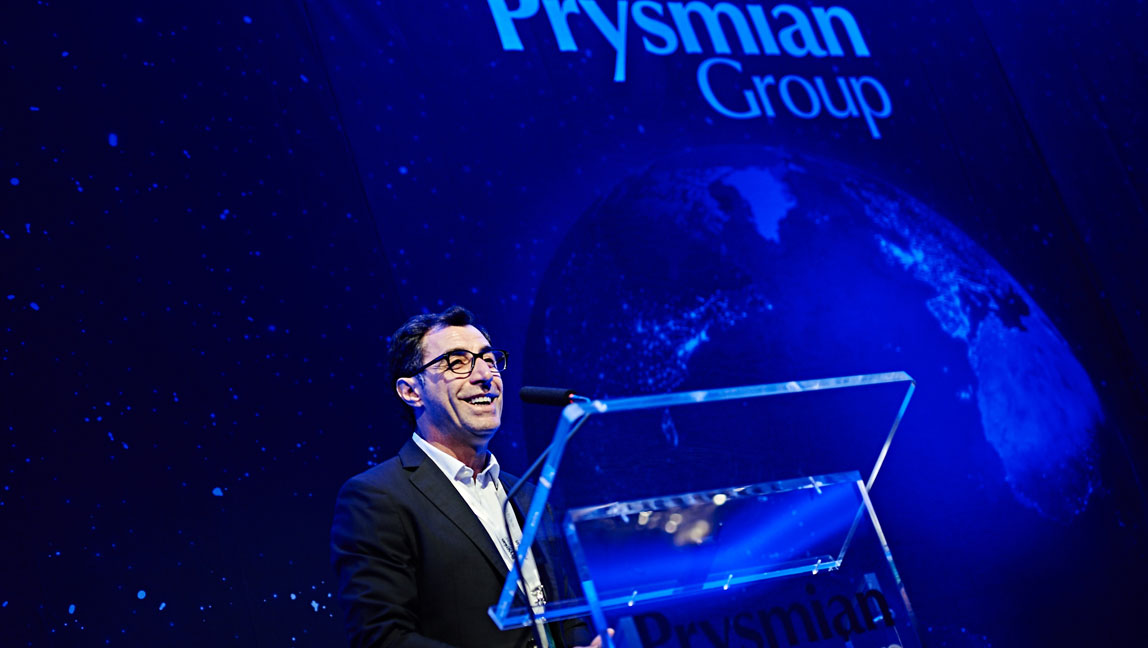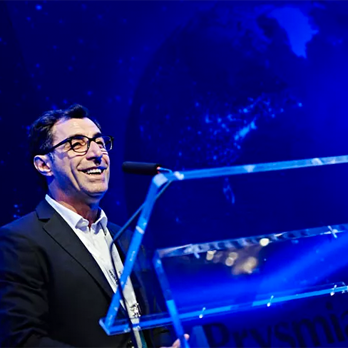Talking about sustainability

In 2016, it was ranked fourth in the ‘Electrical Components & Equipment’ area by RobecoSAM, the Swiss sustainability ratings agency. This information was included in the prestigious Dow Jones Sustainability Index, marking a leap forward for Prysmian’s placing overall.
It is also included in an elite group of companies listed in the Italian edition of the CDP Climate Change Report. After publicly reporting their environmental information, they achieved a B rating in the ‘Industrials’ sector (of a possible eight grades ranging from A-D).
Prysmian additionally won recognition for its environmental, social and governance (ESG) KPIs from STOXXO Global ESG Leaders Index and it’s green energy revenues from Carbon Clean 200. In fact, it was the only Italian company to be included in the latter rankings.
This follows on from its 2015 inclusion in the FTSE4Good Global Index, recognizing its ethical, transparent and sustainable management approach. It’s an impressive litany of achievements.
Now, Mr Caruso, Corporate & Business Communication Director, discusses the path taken by the Group and comments upon the most recent developments in the area of non-financial disclosure.

How will CSR and the role of the sustainability manager change due to the non-financial directive that comes into effect next year?
I believe it is important to start with a premise. Sustainability is more than disclosure. It’s more than reporting what is being done or ought to be done. It should not be dictated by legal obligations, but should lead you to improve your way of doing things, with benefits for the wider community.
The new directive on non-financial information will help less-structured companies implement a reporting system and organised firms continuously improve by defining approval processes and assigning responsibility within their organisations.
This legal obligation may be viewed as a driver for the future and will contribute to providing investors with a wider range of key company information.
How will the input of investors change CSR and the role of the sustainability manager?
For any listed company, investors are key stakeholders. They therefore have a very strong voice. Recently, we’ve witnessed increasing interest in business sustainability from both socially responsible and traditional investors.
When those who are committed to creating financial value show interest in non-financial reporting issues, it indicates that a sustainable company has a greater opportunity to create value over time than others.
Proof of this may be found in the Dow Jones Sustainability Index, which is increasingly becoming a benchmark of financial and non-financial performance, and in the tendency to include non-financial analysis in many major financial indices such as Bloomberg or Thomson Reuters.
EN - Stories - Ethics & Sustainability - Talking about sustainability - Gallery Sustainability
Id: 7619
Type: text_and_gallery
Url: node/7619
How will the input of consumers change CSR and the role of the sustainability manager?
It is a question of perspective and points of view. Clearly, like the investors, a customer’s vision is absolutely fundamental, and not just because sustainability represents a business opportunity. But social responsibility permeates the entire company, and, increasingly, the entire supply chain. It is not just a consumer issue.
Sustainability is important to us in a personal capacity. The responsible pursuit of sustainability, from the smallest personal action to the most complex industrial process, is the only path open to us.
What strategic importance does the company place on variables of a non-financial nature (environmental, social and governance)?
Prysmian Group began to discuss these issues around ten years ago. Today, sustainability is linked to all of our operating and business activities, from governance to innovation, and from operations to finance. Our sustainability plan is directly inspired by the United Nations 2030 Sustainable Development Goals and incorporates medium/long-term qualitative and quantitative objectives that lay the foundation for a strategy that seeks to achieve increasingly ambitious common results year after year.
What level of integration has the company achieved in reporting non-financial variables (human, intellectual, social and territorial capital)?
Today, sustainability is an element that is fully integrated with all company functions and involves various aspects of the business, including non-financial variables relating to the various types of company capital in its reporting.
Already, we’re seeing benefits for employees, the community and the development of the company. This level of interconnection allows us to best assess our risks and opportunities relating to non-financial performance and to focus increasingly on a fully-fledged sustainability strategy.
/ Awards & Recognitions
Prysmian was ranked in the ‘Electrical Components & Equipment’
The Group is listed in the Italian edition of the CDP Climate Change Report
Prysmian gained recognition from STOXXO Global ESG Leaders Index

INNOVATION
The future is closer than you think

OPERATIONS
Inside Prysmian’s new ‘smart-working’ HQ

CONSTRUCTION & INFRASTRUCTURE
Burj Khalifa: sky-high safety

OPERATIONS
Fast Forward. Boosting Operations

ETHICS & SUSTAINABILITY
Talking about sustainability

TRANSPORTATION & MOBILITY
Technology at the service of the rebirth of New York

CONSTRUCTION & INFRASTRUCTURES
The Shard: a majestic cone of light, fed by our cables

ETHICS & SUSTAINABILITY
The true power of sustainability
EN - Stories - Magazine
Id: 3957
Type: panel
Url: node/3957







